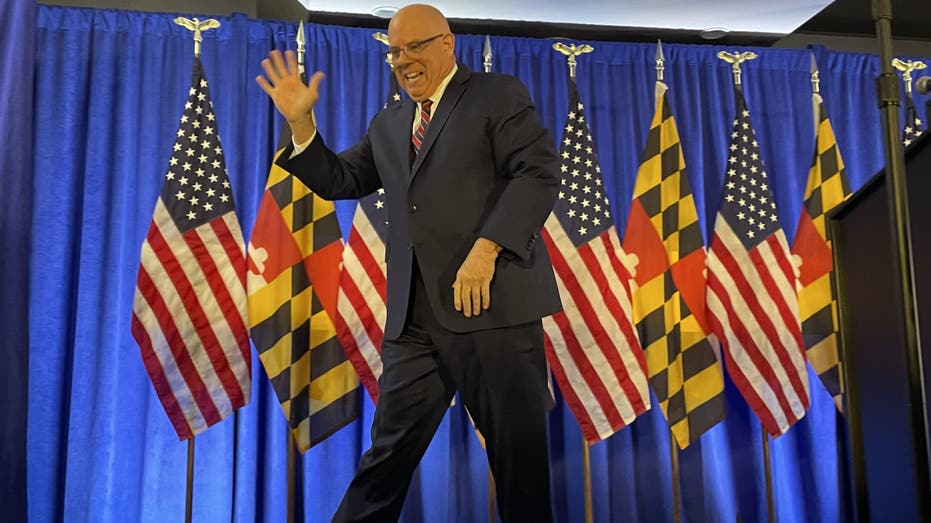GOP Congresswoman Shows Mind-Blowing Hypocrisy on Alabama IVF Ruling
A Republican representative is outraged by the recent Alabama Supreme Court ruling restricting IVF—despite supporting a federal bill that would have done just that.“As someone who struggled to get pregnant, I believe all life is a gift. IVF allowed me, as it has so many others, to start my family,” California Representative Michelle Steel tweeted on Thursday. “I believe there is nothing more pro-life than helping families have children, and I do not support federal restrictions on IVF.”Steel’s solidarity with Alabaman IVF patients rings pretty hollow considering she co-sponsored the Life at Conception Act. The measure, which was introduced first in 2021 with 166 co-sponsors and then again in 2023 with 124, would have established that life begins at fertilization. The bill has not advanced since.Like the Alabama ruling, the Life at Conception Act would have severely restricted—if not effectively banned—IVF treatments as well, because it grants “equal protection” to “preborn” humans, including embryos. Since it’s common for fertilized eggs not to survive the IVF process, the act would put doctors at risk of being charged for wrongful death of embryos. That risk would be enough to scupper the IVF industry.And that is exactly what is happening in Alabama. The state Supreme Court ruled 7–2 last week that embryos created through IVF can be considered children and are thus protected under the Wrongful Death of a Minor Act. Since then, at least three fertility clinics have ceased IVF treatments to avoid potential legal repercussions.The University of Alabama at Birmingham’s medical school announced Wednesday that it is pausing IVF treatments. The next day, the Center for Reproductive Medicine and Mobile Infirmary Medical Center, which was a defendant in the Supreme Court lawsuit, and Alabama Fertility Specialists announced they were also halting IVF treatment. The CDC lists a total of eight clinics in the state that provide assisted reproductive technology services.Other Republican lawmakers have also spoken out against the Alabama decision, and their responses are just as hypocritical as Steel’s, although for a different reason. Party leadership is rushing to preserve the GOP’s supposedly pro-family reputation, and on Friday, the Senate Republican campaign arm sent a memo to GOP candidates, urging them to “clearly and concisely reject efforts by the government to restrict IVF.” In the memo, the National Republican Senatorial Committee slammed the all-conservative Alabama court’s decision as “fodder for Democrats hoping to manipulate the abortion issue for electoral gain.”

A Republican representative is outraged by the recent Alabama Supreme Court ruling restricting IVF—despite supporting a federal bill that would have done just that.
“As someone who struggled to get pregnant, I believe all life is a gift. IVF allowed me, as it has so many others, to start my family,” California Representative Michelle Steel tweeted on Thursday. “I believe there is nothing more pro-life than helping families have children, and I do not support federal restrictions on IVF.”
Steel’s solidarity with Alabaman IVF patients rings pretty hollow considering she co-sponsored the Life at Conception Act. The measure, which was introduced first in 2021 with 166 co-sponsors and then again in 2023 with 124, would have established that life begins at fertilization. The bill has not advanced since.
Like the Alabama ruling, the Life at Conception Act would have severely restricted—if not effectively banned—IVF treatments as well, because it grants “equal protection” to “preborn” humans, including embryos. Since it’s common for fertilized eggs not to survive the IVF process, the act would put doctors at risk of being charged for wrongful death of embryos. That risk would be enough to scupper the IVF industry.
And that is exactly what is happening in Alabama. The state Supreme Court ruled 7–2 last week that embryos created through IVF can be considered children and are thus protected under the Wrongful Death of a Minor Act. Since then, at least three fertility clinics have ceased IVF treatments to avoid potential legal repercussions.
The University of Alabama at Birmingham’s medical school announced Wednesday that it is pausing IVF treatments. The next day, the Center for Reproductive Medicine and Mobile Infirmary Medical Center, which was a defendant in the Supreme Court lawsuit, and Alabama Fertility Specialists announced they were also halting IVF treatment. The CDC lists a total of eight clinics in the state that provide assisted reproductive technology services.
Other Republican lawmakers have also spoken out against the Alabama decision, and their responses are just as hypocritical as Steel’s, although for a different reason. Party leadership is rushing to preserve the GOP’s supposedly pro-family reputation, and on Friday, the Senate Republican campaign arm sent a memo to GOP candidates, urging them to “clearly and concisely reject efforts by the government to restrict IVF.”
In the memo, the National Republican Senatorial Committee slammed the all-conservative Alabama court’s decision as “fodder for Democrats hoping to manipulate the abortion issue for electoral gain.”


